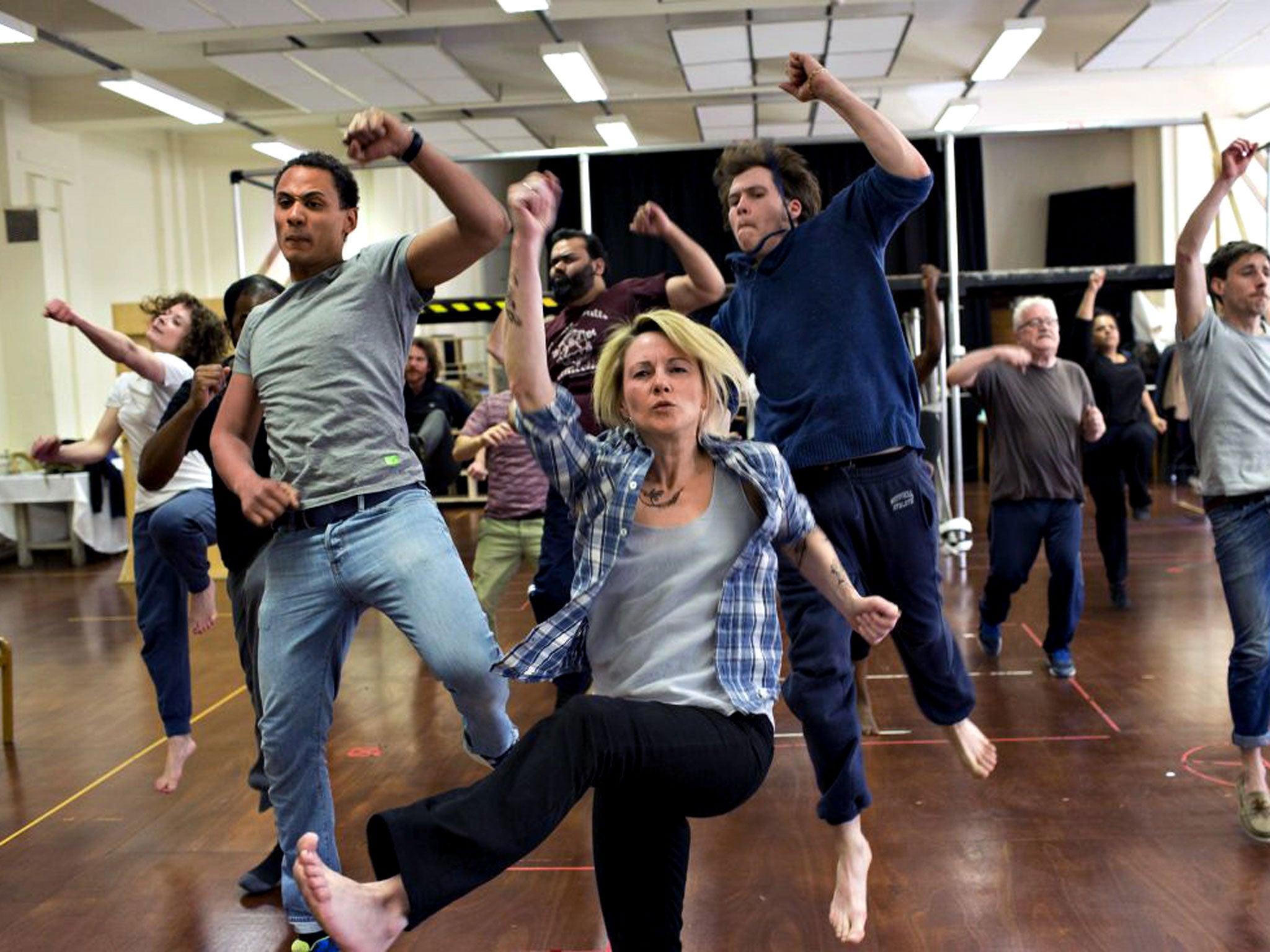Lisa Dillon: The roaring girl who is a match for any man
She has starred with Benedict Cumberbatch and Chris O'Dowd, but Lisa Dillon is puzzled that she is less famous

Your support helps us to tell the story
From reproductive rights to climate change to Big Tech, The Independent is on the ground when the story is developing. Whether it's investigating the financials of Elon Musk's pro-Trump PAC or producing our latest documentary, 'The A Word', which shines a light on the American women fighting for reproductive rights, we know how important it is to parse out the facts from the messaging.
At such a critical moment in US history, we need reporters on the ground. Your donation allows us to keep sending journalists to speak to both sides of the story.
The Independent is trusted by Americans across the entire political spectrum. And unlike many other quality news outlets, we choose not to lock Americans out of our reporting and analysis with paywalls. We believe quality journalism should be available to everyone, paid for by those who can afford it.
Your support makes all the difference.There is a notice on the door of the RSC's rehearsal room instructing ladies to wear bodices, bustles and skirts for all Roaring Girl rehearsals. Next to the notice is a rack over which said items are slung seductively. I wonder for a moment whether the notice applies to lady journalists as well as lady actresses before deciding reluctantly that, even if it did, the petticoats were made for people somewhat taller than me.
As I enter, the actress Lisa Dillon is midway through flooring, verbally and physically, a strapping young man at least a foot taller than her. She's not wearing a bodice or a bustle or even a skirt (perhaps she's too short too?). Instead, Dillon prowls the floor in a Sherlock-style overcoat a with a top hat, roguishly aslant. She looks incredibly cool. But then, as Dillon explains, Moll Cutpurse, the character she plays, is incredibly cool. "I think it possible," she says, "the audience may leave saying: 'Moll is the coolest woman I've ever witnessed on stage.'"
Moll Cutpurse is based on the real-life Mary Frith – a cross-dressing, pipe-smoking, brothel-keeping, pickpocketing, parrot-keeping, mastiff-breeding extrovert born sometime in the mid-1580s. If this were not enough to make Frith extraordinary, she has a good claim to being the first English female to appear professionally on stage. She used to perform at the Fortune Theatre, entertaining audiences with her music and banter.
Frith was one of the rare people to receive folk hero(ine) status in their own time, and in 1611 Thomas Dekker and Thomas Middleton made her (albeit slightly whitewashed) the heroine of a play. Legend has it that Frith herself was in the audience of the first night and gave the epilogue. Dillon calls Frith "one of the most uncelebrated female icons in history".
It has been one of the greatest challenges of the play, says director Jo Davies, to find the voice for the "roaring girl" – a woman who is equally, "sexual, political, personal, playful and individual". But it is this voice that appeals to Davies, that of an early 17th-century heroine "who doesn't want to get married… and follow the usual line of protocol for a woman of the 1600s". It seems to her that even today "there's a great deal of expectation on women that they will grow up and get married and have children". Anything else, Davies believes, "is seen as a rather pitiable path".
Unsurprisingly, given sexism is such a theme of the play, it becomes the theme of my conversation with Dillon. She has acted with Benedict Cumberbatch in three plays and in her first ever television job (Cambridge Spies) she had the big role, while Cumberbatch had a minor role as a journalist. She has also starred alongside Andrew Scott and Chris O'Dowd. "When you look at the leading men who I've played opposite, it's quite extraordinary the way in which their careers have taken off."
While Dillon admits she has not always made the most commercial choices, she still think it helps to be male: "At every point in those productions, I've matched them critically, I've matched them with size of role, I've matched them with audience enjoyment, so..." So what else could it be, is her silent question. Is there a little bit of her which would like to have the celebrity status of her former male co-stars? Dillon places her head to one side as she considers the question. She is clearly trying to be as honest as possible. "Well, it probably comes from a place of ego and vanity. Yes, I'd like to be on the inside."
Then Dillon gives herself a shake and finishes, Moll-like, defiantly upbeat, "No. The inner-circle can keep their inner-circle and I'll keep playing characters like Moll!"
'The Roaring Girl', Swan Theatre, Stratford-upon-Avon (www.rsc.org.uk) 9 April to 30 September
Join our commenting forum
Join thought-provoking conversations, follow other Independent readers and see their replies
Comments